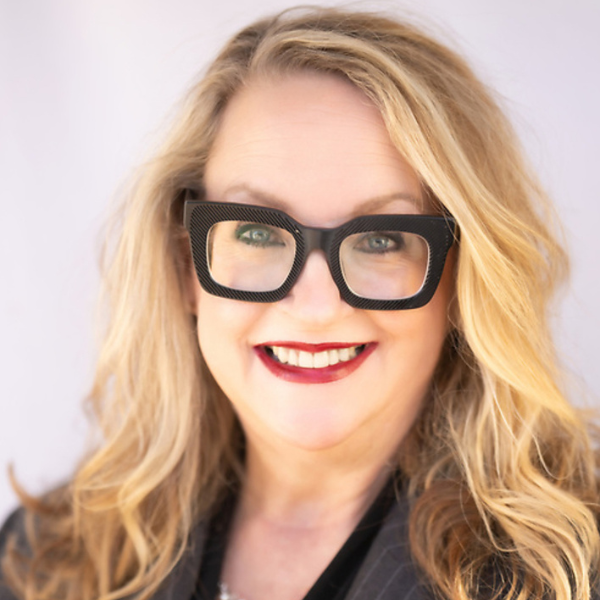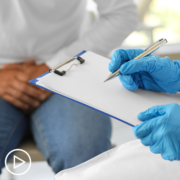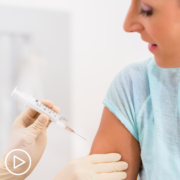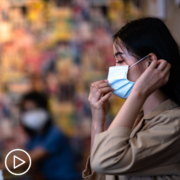(Editor’s note: This article is in 2 parts. This is Part 1 (go here to read Part 2) and consists of an interview of Dr. Anita Wolfer, Senior Oncologist and Head of Unit in Oncological Research, Lausanne University Hospital (CHUV). The interview was conducted by the “Indomitable” Christine Bienvenu, breast cancer patient, avid patient advocate and board member of the Patient Empowerment Foundation, our sister organization under development in Europe. And please, don’t be concerned that this is an interview with a European oncologist. You will be surprised to see that the issues, thoughts, concerns of patients and doctors are the same. These issues are worldwide!)
Great progress has been made today in immunotherapy and targeted therapies – especially in cancer research – thanks to patients having access to clinical trials. It is crucial that patients learn about their options.
Interview With Dr. Anita Wolfer
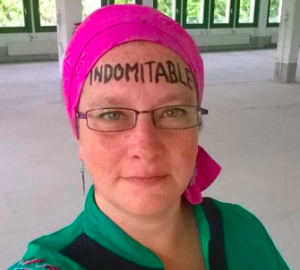
The Indomitable Christine Bienvenu
Christine Bienvenu (CB): How do clinicians learn about clinical trials?
Dr. Anita Wolfer (AW): It depends very much on where they’re working: Doctors in university hospitals are constantly informed of clinical trials. Their peers outside the hospital environment are not, though: It’s up to them to actively find clinical trials and stay informed.
CB: Here in Switzerland, are there formal protocols in place for spreading information about clinical trials?
AW: In terms of the medical system, there aren’t any formal protocols on doctors being up to date on clinical trial options. I think it’s important that university doctors take it upon themselves to keep their non-university environment peers informed. Often, unfortunately, those oncologists working outside the hospital environment only think of clinical trials when conventional treatments have failed. For researchers like us, it’s more second nature to turn to them for treatment options.
Here in Switzerland, the “Réseau Romand d’Oncologie” (Western Switzerland’s oncology network) centralizes all the information about clinical trials, and keeps it updated. For the new Swiss Cancer Center Lausanne (SCCL) opening in 2017, its director, Prof. Coukos’ vision is simple: All information – clinical trials, research, collaboration, and participatory medicine – should be accessible to patients and professionals alike.
CB: When and why do clinicians talk about clinical trials to their patients, and how do you view the patient’s role in trials?
AW: Often today, oncologists will only talk to a patient about clinical trials if they see that there’s a direct benefit to the patient. But in my view, it’s important to inform the patient of the clinical trial, regardless so that they too can look into the application process. In an ideal world – and I say this as an oncologist and clinical researcher – there would be a clinical trial for every patient who walks through our doors.
As for the patient’s role, I’m a firm believer that sharing is building in this profession. Patients are crucial in this process: No-one knows their bodies better than they do. The way I see it, any patient of mine gives me the opportunity to learn. I don’t want to waste that.
CB: What obstacles do clinicians face in conveying clinical trial information to their patients?
AW: Unfortunately, some oncologists are afraid that university doctors might “steal” their patients, so they don’t readily refer them for fear of losing income for their own hospital. With patients being so closely followed during the clinical trials as well, this is comforting: Often, they’d rather not go back to their ‘regular’ oncologist. In my view, it’s a shame to look at it that way: If there’s a relationship of confidence and trust with their primary oncologist, if patients know they will get all the necessary information, they’ll be more inclined to stay with their respective ‘regular’ oncologists. To be brutally honest, my feeling is if an oncologist is upset about a patient seeking a second opinion, then maybe it’s time to find a new oncologist? It happens in the medical profession: I’m not immune to it – no-one is. But it shouldn’t be an issue… Just like in any relationship, if the doctor/patient relationship isn’t working out for the patient, he or she has every right to move on.
CB: In your profession, how important is mindset – in both the patient and the doctor or clinician?
As in any profession, or with any patient or co-worker, there are always those who are willing and excited to go the extra mile. If the mindset to do so isn’t there, there really isn’t much that either a patient or an oncologist can do in terms of moving forward. A pro-active mindset is crucial.
CB: In the same vein, how important is mindset in clinical trials, then?
AW: Being convinced about the clinical trial is also very important – not only for the patient, but for the doctor. A well-informed doctor means a well-informed patient. Speaking for myself, I’m constantly on the lookout for the best treatment options for my patients – even if it’s a clinical trial outside the CHUV. Why wouldn’t I? It’s about moving forward in cancer research, not about being territorial with knowledge.
CB: What role, for you, does the sharing of information and access to clinical trials play in patient mindsets?
AW: Armed with information, most patients are willing to be a part of trials – even if it isn’t one they had specifically hoped for. Time and again, we’ve seen how patients who participate in clinical trials usually have better outcomes than patients who don’t. Beyond the obvious rigorous monitoring, the crucial element here is that the patients feel more responsible for, and engaged in, their care. What strikes me, time and again, is that clinical trials offer hope. And while not every clinical trial story is a positive one – with frustration and heartbreak often integral to the process – hope is a crucial element and great motivator.
CB: Getting into clinical trials is no small feat. What improvements, if any, would you suggest? Can patients be better-informed about clinical trials?
AW: In an ideal world, there would be a clinical trial for every patient. One of the objectives of the CHUV oncology department is to have a portfolio of trials so that there are alternatives for every patient. And despite limited resources, the department is working hard to open up a maximum of number of trials. Also, with the SCCL opening up in Lausanne, more research funding is coming in, and more specialised oncologists are coming on board.
CB: What for you is a key component of a successful patient/clinician or doctor relationship?
AW: Ultimately, it’s about trust, confidence and collaboration. And going back to your previous question, if patients feel they’re being fully supported by their oncologist, they’ll return to them – university hospital setting or not. To me, it’s extremely important that patients take the necessary steps to establish the relationship of trust that they seek.
CB: What feedback have your patients given you about their experiences in clinical trials?
AW: Some patients will say outright that they’re not interested. But the vast majority – I’d say 70-80% – are willing participants. So far, I’ve only ever had one patient tell me she wasn’t happy with a clinical trial. For most, it goes beyond participating for their own benefit, per se: it’s about being part of a greater cause and helping medical science advance. Patients are genuinely altruistic. What is clear, though, is that it’s a team effort that involves the patient and the medical community.
CB: Where can patients find information about clinical trials?
AW: There are a number of great resources out there. In no particular order, I can suggest the Swiss Group for Clinical Cancer Research (http://sakk.ch/en/) or Clinical Trials (https://clinicaltrials.gov/) which is a service of the US National Institutes of Health that lists all the studies being done in all 50 US States and in 190 countries.
Here in Switzerland, there are obviously the Lausanne University Hospital (CHUV: http://www.chuv.ch/) or the Geneva University Hospital (HUG: http://www.hug-ge.ch/) websites. Experience has taught me that the university websites are sometimes a bit outdated, but patients can send emails directly to oncologists there and should get an answer.
CB: Any parting words of wisdom?
AW: Patients never doubt themselves in asking questions. There is no such thing as a stupid question. If a patient isn’t having his or her questions answered, he or she has every right to find someone who will! Questions are crucial: They lead to greater understanding, knowledge, and progress.
Also, it’s important to remember that in Clinical Trials, limits have to be set to be able to provide realistic results. Make the criteria too broad, and it becomes difficult to show a trial’s effectiveness. With immunotherapy, clinical trials broaden patient eligibility. Granted, a patient needs to be healthy enough to be able to benefit from a trial, so if for example a patient is in palliative care, they wouldn’t be eligible – unless, of course, the clinical trial is in palliative care.
The National Cancer Institute’s (NCI) “10 step guide on how to find a cancer treatment trial” helps patients better understand what clinical trials are all about, how to talk to their doctors, and know what questions to ask, visit: http://www.cancer.gov/about-cancer/treatment/clinical-trials/search/trial-guide?cid=tw_NCIMain_nci_Clinical+Trials_sf39211784
